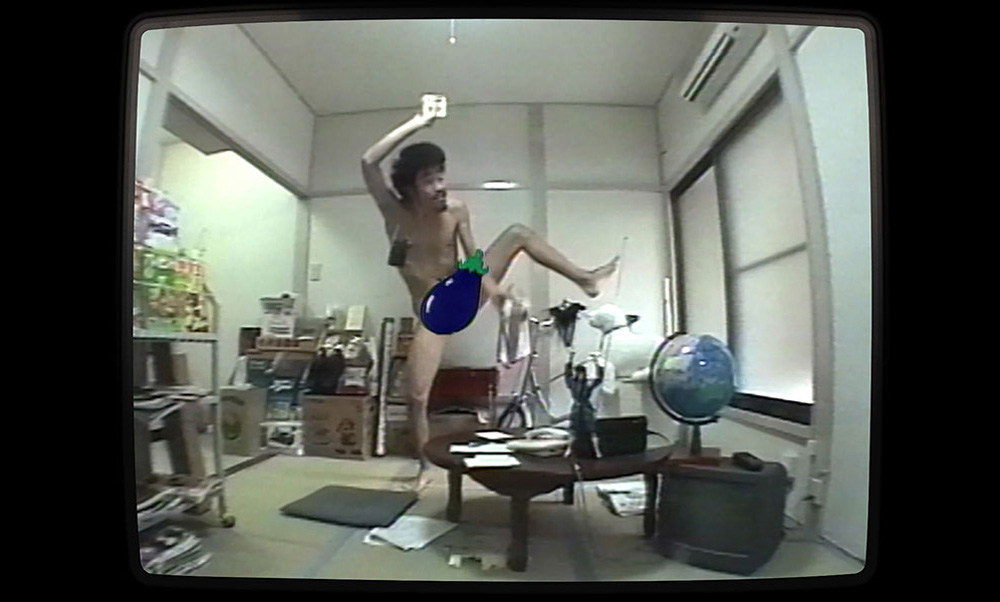“I never won anything before,” Tomoaki “Nasubi“ Hamatsu says after drawing a ticket from a bag in “The Contestant” that would change the trajectory of his life, for better or worse. An aspiring comedian, he only had a faint idea of what he was signing up for when pulled from a group hoping to appear on a new offshoot of the Japanese prank show “Denpa Shonen” called “A Life in Prizes” and before he could start asking questions, he was pulled into an apartment where he’d spend months in isolation being filmed as he tried to complete challenges in which he’d earn the sustenance to survive and ultimately be freed upon reaching one million yen’s worth of goals. The show became a sensation in Japan, arguably inspiring the eggplant emoji when it was used to protect Nasubi’s modesty during live broadcasts where he was never allowed to wear clothes, and preceding the likes of “Big Brother” or even “The Truman Show,” which came out a few months later in 1998, it takes place at a time when it was both something entirely new and the rules for reality television weren’t yet written, allowing for the show’s producer Toshio Tsushiya to make things up as he went over the 15 months Nasubi spent on television.
Playing God is still something that has clear appeal to Tsuchiya when he sits down to tell director Clair Titley what he was thinking as he subjected Nasubi to various forms of psychological torture on “A Life in Prizes,” obsessed with getting an interesting reaction no matter what the means, but when the film has Nasubi reflecting on the experience as well, occasionally crossing paths in split-screen with the producer, “The Contestant” becomes a gripping account of what the reality of reality TV really is. Quite conscious that she’s benefiting from the same lurid premise that originally pulled in viewers to “A Life in Prizes,” you at first wonder whether Nasubi will survive the early days of the show even after seeing him in the present day, somehow with only a swoop of grey in his hair and you don’t know how there isn’t more. On a cold streak at the beginning when it came to the challenges, Nasubi was fed crackers off-screen by producers, who were instructed not to engage with him otherwise, and while seemingly having come into this position randomly, he is the ideal contestant with a telegenic goofy grin and a playfulness that made him more beloved by viewers and less likely to be released by Tsuchiya who wanted to ride the ratings as long as he could.
Titley doesn’t make you feel too guilty for watching, but steadily lets doubts creep in when an unctuous Fred Armisen is brought in to translate for the show’s original play-by-play announcer and the subtitles are presented in big and gaudy font, all underscored by the show’s original laugh track and moments that are presented as entertainment by the show are recast by both Nasubi and Tsuchiya as painful mind games, often distilling hours of footage into bite-sized moments played for laughs. This observation may not be a new one, but “The Contestant” presents it in a fresh way and has the right example to reflect on it so directly when Nasubi was the lone contestant, which in itself becomes a driving force for the film as he’s overcome by loneliness. Scenes in which he appears to be mugging for the cameras now look like him speaking to himself simply trying to keep himself sane and the distance between people by a traditional sit-down interview format takes on a more profound meaning within the film’s narrative design when Nasubi’s mother, sister and childhood friend, all having different situations can only speak to the situation from afar.
By the time Nasubi is let out of his confines, with the walls around him opening up like a gift in front of a live studio audience and unaware that the world has been watching his every move all this time, the viewer realizes they’ve been just as much in the dark about what he went through until now. That point becomes even clearer when “The Contestant” tracks Nasubi’s days post-“Life in Prizes” where having survived such a traumatic experience gives him a unique handle on how to help others in his hometown of Fukushima after the destruction of the 2011 natural catastrophe that hit the town. When raising concerns over how “A Life in Prizes” rewired Nasubi’s brain in detrimental ways, the film also expresses how something of real value could be taken away, no thanks to the show itself but a human ability to adapt and endure and reveals something about storytelling itself when in the wrong hands, Nasubi’s perseverance can be exploited for breezy escapism, but “The Contestant” finds a deeply affecting story of survival.
“The Contestant” does not yet have U.S. distribution.




